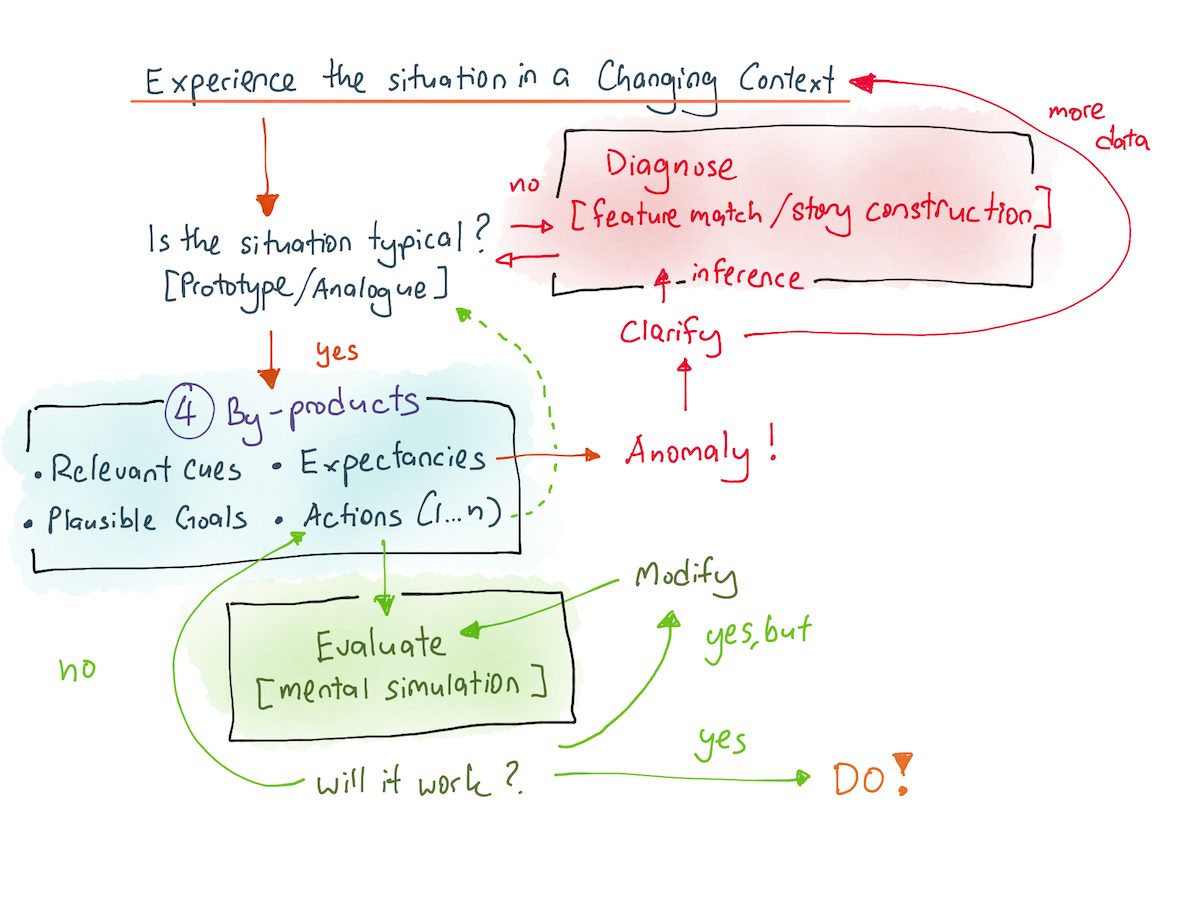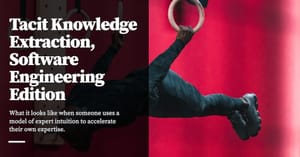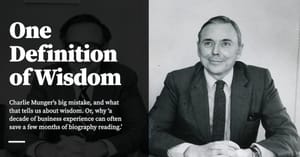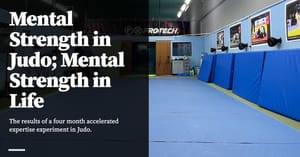I took the past two weeks off here in Commonplace, because I flew back to my hometown for the Chinese New Year holidays, and also because I wanted to spend some time reflecting on all that I’ve learnt in the last year.
(Don’t worry, I’m not going to bore you with a review post. The time for that is past).
One of the more challenging ideas that I’ve grappled with as a result of writing on this blog is the notion that ‘expertise is simply pattern-matching’. I don’t think I’ve expressed it this concisely before — and certainly not in these exact words — but the idea follows naturally from two other ideas that I’ve covered extensively on Commonplace over the past year.
The first idea is the ‘recognition-primed decision making’ model developed by psychologist Gary Klein and his collaborators, working in the US military and with expert firefighters and NICU nurses. I’ve written extensively about the model on this blog, so I’m not going to repeat myself (read this instead) but the core of it is simply that expertise is an implicit memory operation: you recognise a situation in a developing environment and then unspool that recognition into a set of cues, a list of plausible goals, and handful of expectancies, and a series of trained actions. If the situation is novel, you construct variants of intended actions on the fly and simulate these scenarios in a loop, picking the first workable solution in your mind.

This model of expert decision-making is useful because it gives us a usable model of expertise — far better than the ones found in the deliberate practice literature. For example, one conclusion from this model is that if you want to become better at something, you should look for ways to expand the set of recognisable prototypes in your head.
The second idea is simply that expertise rests on technê, or tacit knowledge — the sort of knowledge that is impossible to communicate, that must be constructed from practice. I’ve written about this idea numerous times over the past two years: first in my original criticism of mental model writing, then in my reflection on Seymour Papert’s life’s work. I covered it again in The Mental Model FAQ and The Dangers of Treating Ideas from Finance as Generalised Self Help. I’ve mentioned it here and there throughout Commonplace’s history; indeed, my reliance on technê is one of the big pieces of idea scaffolding for this blog.
In fairness, this take on expertise-as-tacit knowledge is pretty uncontroversial, and relatively well-known. In his 2016 book on deliberate practice, for instance, Professor K. Anders Ericsson explains that the basis of human expertise rests on building effective mental representations of whatever field it is that you want to be an expert in. This applies as much to fields like chess as it does karate and music.
So you put these two ideas together, and what you get is … well, you get the idea that perhaps the art of practice is simply whatever is the most effective method of expanding one’s collection of recognisable prototypes (and of course: the actions to take in response to those recognisable prototypes). How you do this is also relatively well-established (previous posts one, two): you want to decrease the length of your feedback loop; you want to focus on specific subskills before moving to more complicated ones, ideally you do this with the guide of someone slightly more skilled than you, and when you seek out the best practitioners, you copy them instead of asking them for ‘how’ — not all world-class practitioners are good teachers; beware the curse of the expert — you learn to mime their movements first, in order to help your brain along as it constructs the tacit models necessary for performance.
I look at all I have learnt from synthesising and applying the learning literature here at Commonplace, and then I look back at my childhood with some regret. I am terrible at the piano and bad at math. From ages eight to fifteen, I spent hours doing naive practice: seated at the piano, mindlessly repeating pieces until I could go out to play. I also spent hours — far more hours — applying rote formulas in repeated math drills without an understanding of the underlying concepts. How many years did I waste in the inefficient pursuit of expertise? How much more could I have done with the knowledge that I have today?
The idea that ‘expertise is just pattern-recognition’ is challenging to me because it doesn’t seem like it should be so simple. What about creativity, for instance? Klein covers this in his research; in Sources of Power he discusses how expert minds use pattern-recognition to identify ‘leverage points’ — points in which one could do something radically different — in order to come up with creative solutions within the constraints of some domain. I’ve dug a little into the research and I think the take is plausible, but I’m not entirely convinced. Surely the mechanism of creativity is different from the prototype-based recognition that drives most of expertise? The short answer to that seems to be ‘yes, creativity relies on connections between different ideas and this is independent of expertise’ but also ‘identifying the right leverage points is still a recognition/expertise thing’. The two seem highly intertwined in the sorts of fields that Klein studies; my remaining scepticism is that I do not know if this is true in ‘pure’ creative domains like art and design and fiction writing.
The other challenge with ‘expertise is pattern-matching’ is that it makes what is mysterious about expertise less so. This sounds like an unambiguously good thing — surely the lack of mystery also implies ease of skill acquisition? But in another sense it isn’t.
There’s this overused saying that climbing a mountain may seem intimidating, so you should focus on putting one step in front of another and not look up too much. I used to wonder at the programming skill of my seniors and mentors and marvel at how quickly they sized up codebases, at how well-developed their taste was. But now I look at them and think: “wow, they must’ve spent years acquiring all those patterns in their heads”. And the clouds obscuring the top of the mountain lifts a little, and the amount of work necessary to become good becomes clearer. It also becomes that much more intimidating.
The upshot to all of this is that I have started to change the way I approach my learning. I no longer write side-projects; I write incomplete, throwaway prototypes to express some idea in code. I no longer write whole essays to practice some new writing technique; I take existing essays and splice them with newly-written passages containing those techniques. And I spend a huge amount of time reading around specific questions or themes, in order to collect the stories and patterns necessary for pattern-recognition.
These adaptations seem to have resulted in better learning outcomes. But I won’t lie: I continue to struggle with the notion that expertise is merely pattern-recognition. It seems too simple — there has to be more. Yet the results seem to speak for themselves. And perhaps that should be good enough for me.
Originally published , last updated .
This article is part of the Expertise Acceleration topic cluster. Read more from this topic here→





